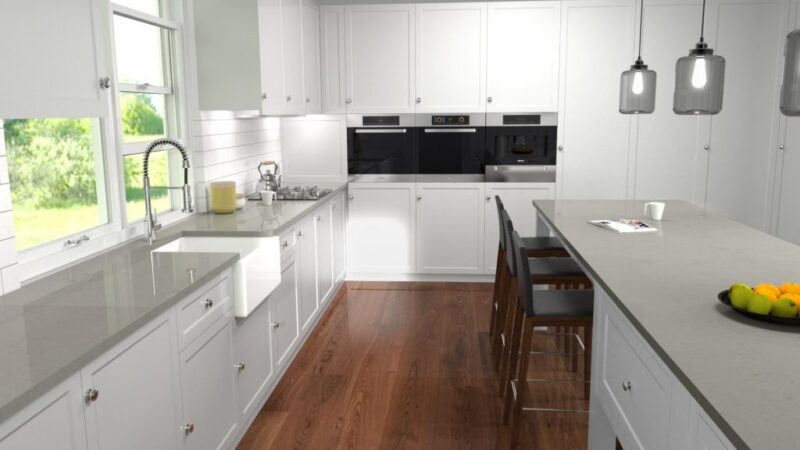Roof inspections are vital to maintaining a home, particularly after storms or before buying or selling property. While most homeowners hire professionals to inspect their roofs, only some ask the necessary questions to ensure a thorough and transparent inspection process. Asking the right questions, both before and after the inspection, can help you understand the condition of your roof, the inspection’s scope, and any required repairs or replacements. We will explore key questions to ask your Blue Springs MO roofing inspector at different stages of the inspection process to ensure clarity, proper communication, and informed decision-making.
Questions to Ask Before the Inspection
Before the inspection begins, it is important to clearly understand the process and what the inspector will be looking for. One of the first questions to ask is what the inspection will cover. Will the inspector evaluate only the surface condition of the shingles and tiles, or will they be checking for deeper issues, such as water damage, mold, or structural integrity? Confirm whether the inspection will include a thorough check of areas like the attic, flashing, gutters, and ventilation systems, as some inspections focus only on the roof’s exterior, leaving potential internal issues unnoticed.
It’s also essential to ask the inspector about their experience with your type of roof material. Different roofing materials, such as asphalt shingles, metal, or tile, require different inspection techniques, and not all inspectors are familiar with every kind. Knowing that your inspector is experienced with your roof’s material can provide peace of mind that the inspection will be conducted accurately. Another useful question is how long the inspection will take. The answer will vary depending on the size of your roof and its complexity. Knowing the expected timeframe can help you plan your day and ensure enough time is allocated for a thorough inspection.
Lastly, don’t forget to ask about the inspection cost upfront. While it may seem obvious, many homeowners forget to inquire about the price until after the inspection. Understanding the cost before the inspection begins will help you avoid any surprises and allow you to budget for potential repairs or future inspections. Asking these key questions before the inspection will set the stage for a smoother, more transparent process.
Questions to Ask During the Inspection
Communication with the inspector is essential during the inspection to stay informed and ask follow-up questions if needed. Questions like, “Can you point out any immediate concerns?” can help clarify what the inspector observes in real time. This allows you to visually understand issues such as cracked shingles, sagging areas, or potential water leaks. Additionally, inquire about any preventative measures to avoid future damage. Inspectors often spot wear and tear that, while not urgent, might become a more serious issue later on. For example, poorly maintained flashing or clogged gutters can lead to long-term water damage if left untreated.
Another helpful question is whether the inspector is taking photos during the process. Photo documentation can be valuable for two reasons. First, it provides visual proof of any issues found, which can be particularly useful if you need to file an insurance claim. Second, photos can offer a baseline for future roof maintenance, showing what your roof looked like at the time of inspection and allowing you to track any changes or damage over time. If the inspector is not planning to take photos, you might request that they do, as it can make a big difference when reviewing the inspection report later.
Questions to Ask After the Inspection
After the inspection, you’ll want to review the results with the inspector thoroughly. One of the first questions is, “What is the overall condition of my roof?” This broad question opens up the conversation about the major findings of the inspection and gives you an idea of whether immediate action is required. The inspector will likely discuss any problem areas, potential risks, and the expected lifespan of your current roofing system. Be sure to ask for clarification if any terms or concepts are unfamiliar, as understanding the condition of your roof is key to making informed decisions.
It’s also crucial to ask whether any repairs are needed and what those repairs entail. Roof repairs can range from minor fixes, such as replacing a few damaged shingles, to more complex issues, like repairing structural damage or leaks. Understanding the scope of work is essential, as it will allow you to plan for the associated costs and timelines. Follow up by asking how urgent the repairs are—some issues might require immediate attention, while others can be monitored over time. By getting a clear idea of the repair timeline, you can prioritize which actions to take first.
Another question to ask after the inspection is whether the inspector noticed any signs of underlying issues, such as water damage or mold. Roof problems are not always visible from the surface, and hidden issues can lead to more serious damage over time. If the inspector identifies any underlying problems, ask how they can be addressed and whether further inspections or testing are required. Getting ahead of these issues before they cause long-term damage to your home’s structure is essential.
The roof over your head is one of the most important components of your home, and understanding its condition requires more than just a surface inspection. By asking the right questions before, during, and after the inspection, you can ensure that you are fully informed about the health of your roof and any necessary steps to maintain it. Remember that communication with your roofing inspector is key to making informed decisions about your home’s maintenance.



